
The 1931 New Zealand general election was a nationwide vote to determine the shape of the New Zealand Parliament's 24th term. It resulted in the newly formed coalition between the United Party and the Reform Party remaining in office as the United–Reform Coalition Government, although the opposition Labour Party made some minor gains despite tallying more votes than any other single party.

The 1925 New Zealand general election was held 4 November to elect a total of 80 MPs to the 22nd session of the New Zealand Parliament.

The 1928 New Zealand general election was held on 13 and 14 November in the Māori and European electorates, respectively, to elect 80 MPs to the 23rd session of the New Zealand Parliament.
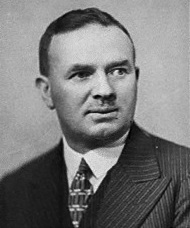
Brigadier James Hargest, was an officer of the New Zealand Military Forces, serving in both the First and Second World Wars. He was a Member of New Zealand's Parliament from 1931 to 1944, representing firstly the Invercargill and then the Awarua electorates.
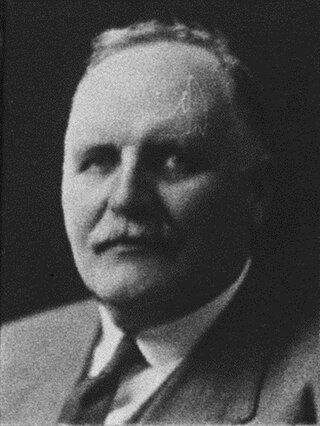
The Tauranga by-election of 1923 was a by-election during the 21st New Zealand Parliament in the Tauranga electorate. The seat became vacant due to the death of the sitting Member, William Herries. The election was held on 28 March 1923 and won by Charles Macmillan, who defeated the former prime minister Joseph Ward.

Invercargill is an electorate of the New Zealand Parliament that has existed since 1866. Since the 2020 election, the electorate's representative is Penny Simmonds of the National Party.

Sir George Hunter was a New Zealand politician of the Reform Party. Born in Wellington, he took over his father's large landholding in the Hawke's Bay at age 18. He was a breeder of sheep and race horses, with his horse Cynisca winning the Wellington Cup three times in a row. Hunter was prominent in local politics, and represented the Waipawa electorate in the House of Representatives for a total of 22 years.
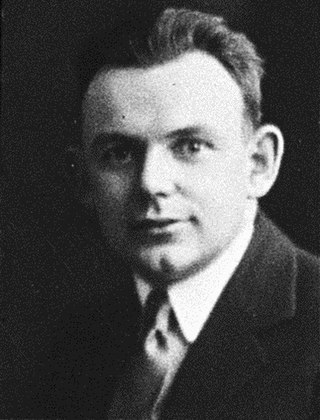
George Charles Cecil Black was a member of the House of Representatives for Motueka electorate, in the South Island of New Zealand, initially as a representative of the United Party and from early 1931 as an Independent. He committed suicide and was succeeded as MP by Keith Holyoake.
Bay of Islands is a former New Zealand parliamentary electorate. It existed during various periods between 1853 and 1993. It was thus one of the original 24 electoral districts, and New Zealand's first ever MP was elected, although unopposed, in the Bay of Islands; Hugh Carleton thus liked to be called the Father of the House.
Awarua was a New Zealand parliamentary electorate from 1881 to 1996.
Timaru was a parliamentary electorate, in New Zealand's South Island. It existed continuously from 1861 to 1996 and was represented by eleven Members of Parliament.
Wairau was a parliamentary electorate in the Marlborough Region of New Zealand. It was one of the initial 24 New Zealand electorates and existed from 1853 until its abolition in 1938, when it was succeeded by the Marlborough electorate. The electorate had 13 representatives during its existence. The 1861 election in the Wairau electorate was notable in that a later Premier, Frederick Weld, was unexpectedly and narrowly defeated by William Henry Eyes.

The 22nd New Zealand Parliament was a term of the New Zealand Parliament. Its composition was determined by the 1925 election, and it sat until the 1928 election.
Waipawa was a parliamentary electorate in the Hawke's Bay Region of New Zealand, from 1881 to 1946.
Wellington East was a parliamentary electorate in the eastern suburbs of Wellington, New Zealand from 1887 to 1890 and from 1905 to 1946. It was succeeded by the Miramar electorate. The electorate was represented by seven Members of Parliament.
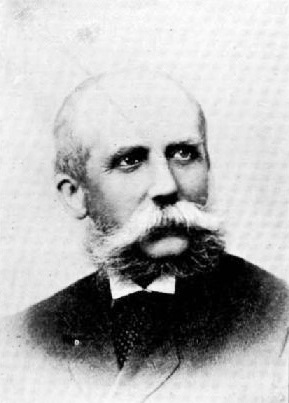
Cuthbert Cowan was a 19th-century Member of Parliament from Southland, New Zealand.

The 23rd New Zealand Parliament was a term of the New Zealand Parliament. It was elected at the 1928 general election in November of that year.
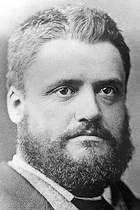
The 1878 Invercargill by-election was a by-election during the 6th New Zealand Parliament in the Southland electorate of Invercargill. The by-election occurred following the resignation of MP George Lumsden and was won by Henry Feldwick.
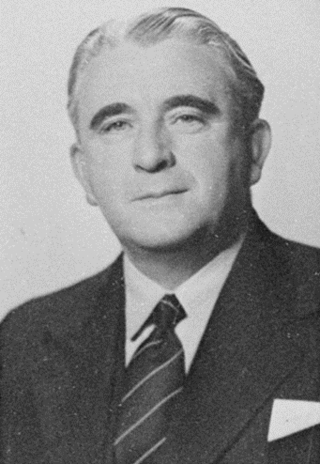
Thomas Francis Doyle (1893–1968) was a member of the New Zealand Legislative Council from 1936 to 1950.

This is a summary of the electoral history of Sir Joseph Ward, Prime Minister of New Zealand, Leader of the Liberal Party and Member of Parliament for Awarua (1887–1919) and Invercargill (1925–1930).













